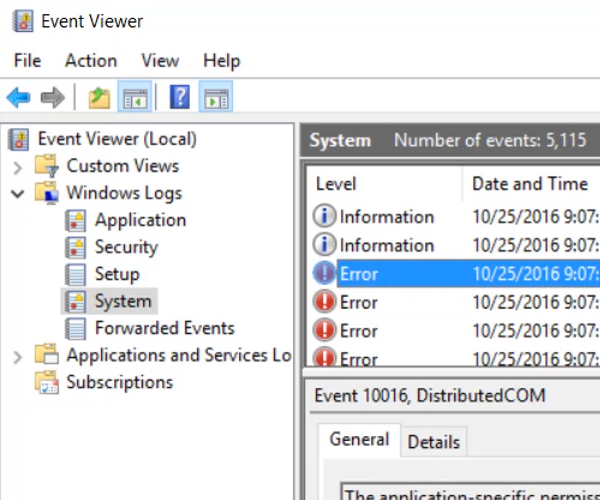Four people have been arrested after a two-year investigation by Microsoft and British police forces into telephone scams which prey upon the vulnerable, tricking them into believing their computers have been infected by malware.
In a typical technical support scam operation, fraudsters will work their way through the telephone book, ringing up people under the guise of working for Microsoft or an affiliated company. In other instances the scam begins with a pop-up message appearing on a user's computer telling them to call "Microsoft Technical Support."
The fraudsters are experts at tricking unsuspecting users into believing that their PC has been infected by malware, often making their story seem more plausible to those less technically savvy by asking them to look for "Warning" or "Error" messages in Windows Event Viewer's application logs.

Of course such entries are entirely harmless, and not evidence of a virus infection at all.
But a vulnerable computer users might be convinced by the scam into handing over their payment details for a fix, or granting the scammer permission to remotely access the PC.
Although many of the scam calls are said to originate in India, British police have arrested a 29-year-old man and a 31-year-old woman from Woking in Surrey, and a 37-year-old man and 31-year-old woman from South Shields, Tyneside.
Action Fraud, the UK's centre for reporting fraud and cybercrime, says that it received 34,504 reports of tech support scams in the financial year 2016/17, and believes the losses sustained amount to £20,698,859.
The figures account for 12% of all reports to Action Fraud, making it the third most reported type of fraud.
With the average age of victims determined to be 62 years old, it is clear that many vulnerable, elderly homeowners must be falling for the scammers' tricks.
City of London Police reminded the public in a press release about the arrests that technology companies do not make unsolicited phone calls to help you fix your computer.
Microsoft's Hugh Milward says that his company is determined to work with the authorities to bring fraudsters to justice:
"Unfortunately, the names of reputable companies, like Microsoft, are often used by criminals to lull victims into a false sense of security. That’s why we partnered with the National Fraud Intelligence Bureau to track these people down and bring them to justice. It’s a collaboration which can cohesively combat and investigate computer service fraud. Today’s arrests are just the start."
"We’d also like to reassure all users of Microsoft software that we will never cold call you out of the blue or use tech support pop ups on websites."
Microsoft has published advice on its website about how to protect yourself from tech support scams.




